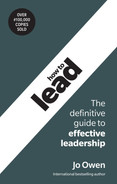chapter 7

Strategy and the art of unfair competition
The problem with a fair fight is that you might lose it. Business leaders may talk about the importance of competition, but, in practice, they do not like competition – unless they win. The best way to win is to have a secure source of healthy and reliable profits. This is what economists call ‘rent seeking’. The classic rent seeker is a monopolist or firm that has some special privilege from government such as subsidies, licences or permissions of various sorts. These privileges tend to guarantee profits without the burden of having to compete much.
An unfair advantage
If you have to compete, make sure you have a thoroughly unfair source of competitive advantage. An unfair advantage is one that earns a very high return and is hard for competition to shift. Every firm needs a few products or businesses like that. You need to be earning far in excess of your cost of capital in a few areas. These excess returns will help pay for all your investments in the future, for operational and strategic mistakes, and for all those businesses that are still struggling to make the return you want.
We live in a world where customers want more for less, the taxman always wants a slightly bigger cut, staff want to be paid more, the competition is cutting prices, innovating and raising quality, and crises and disasters happen on a regular basis. This is a world in which profits can vanish fast. ‘Competitive advantage’ is a weak defence against such challenges – you want such an unfair source of advantage that regulators and politicians start to take notice.
“Ultimately, you want an idea that builds you a source of unfair advantage.”
From a strategy perspective, ultimately, you want an idea that builds you a source of unfair advantage. Here are some examples of ‘unfair’ competitive advantage that are highly profitable:
- •Having a licence to drill oil in a low-cost oil field (ExxonMobil, Petrobras, Shell).
- •Being in the best location on the high street (McDonald’s, Starbucks).
- •Owning copyright, trademarks or patents (Disney and Dyson).
- •Being the first to move into a new market that is a natural monopoly (Microsoft for operating systems, Google for paid search, SWIFT for high-value interbank payments).
- •Building a powerful brand (P&G, Nike, etc.)
- •Owning a unique resource (Heathrow landing slots for BA).
These are all sources of great and ‘unfair’ advantage, which could allow the incumbents to be relatively inefficient and still be very profitable. You can decide how many of the named firms fit that description.
In theory, we might all subscribe to the idea that competition is good. From the point of view of society and the development of the economy, competition is good. From the point of view of our own survival, competition is not so good: you might lose. Weight the dice in your favour where you legally can.
